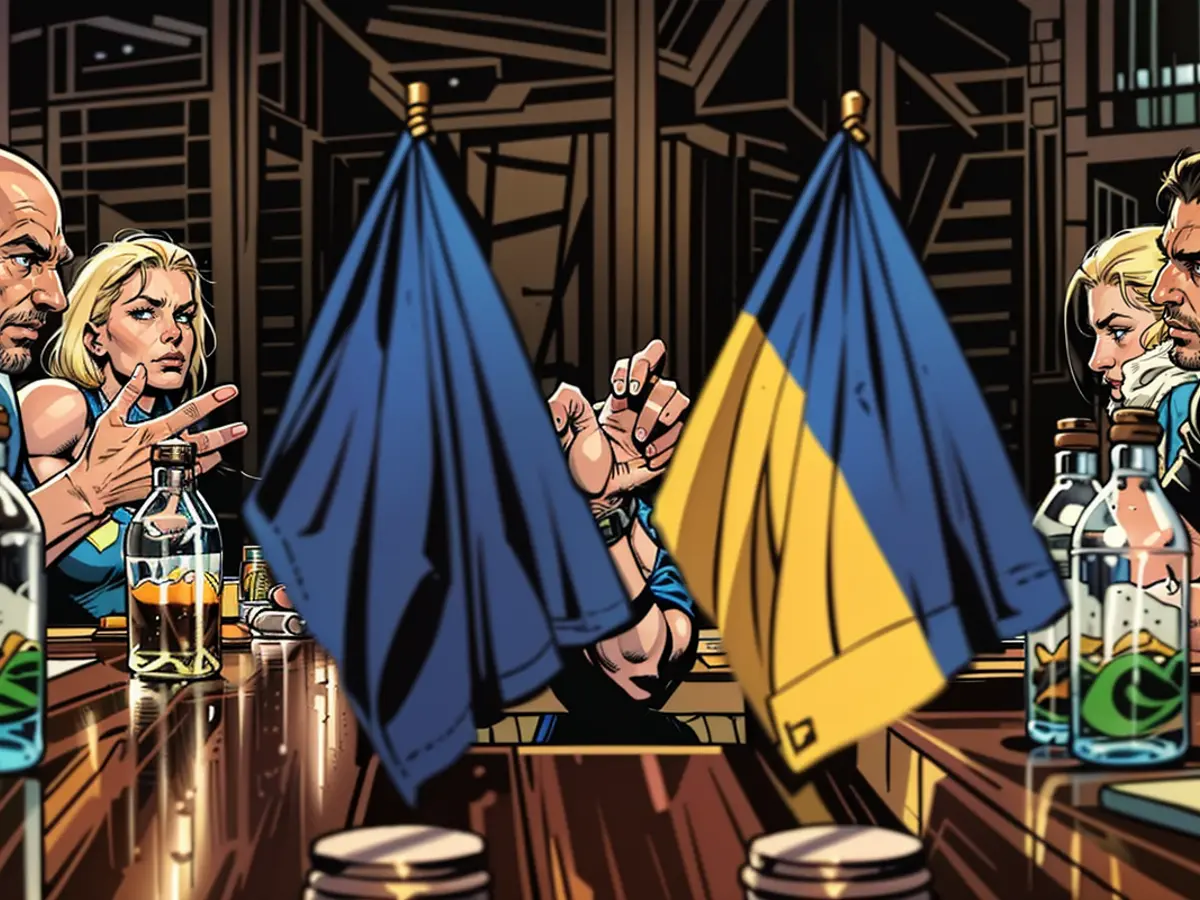Russia to surrender control over seized nuclear power station
At the Peace Summit in Switzerland, numerous nations consented to common demands for peace and Ukraine's sovereignty. The conference yielded three definite resolutions, focusing on war prisoners, food supplies, and an atomic power plant.
Over 90 countries paved the way for potential peace negotiations between Kiev and Moscow at the Ukraine conference in Switzerland. The majority of participants advocated for the inclusion of "all parties" in the peace process and emphasized the significance of Ukraine's sovereignty and inviolability of its borders. The final declaration gathered the support of a large majority of participating countries, but not many BRICS countries like India or Brazil.
The final declaration states: "We believe that peace can only be achieved through the involvement of and dialogue with all parties." The principles of sovereignty, independence, and territorial integrity of all states, including Ukraine, were highlighted.
Eighty of the ninety-three participating countries concluded on three specific points, as detailed on the Swiss Foreign Ministry's website:
- The safe and secure use of nuclear energy and nuclear facilities is essential, with Ukrainian nuclear power plants and facilities, including the Zaporizhzhia Nuclear Power Plant, to be under Ukraine's unrestricted control and in compliance with IAEA principles and under its supervision. Any nuclear threat or use in connection with the ongoing war against Ukraine is unacceptable.
- Nutritional security is crucial for the uninterrupted production and delivery of foodstuffs. Safe and free shipping, as well as access to Black Sea and Azov Sea ports, are of utmost importance in securing this. Attacks on cargo ships or civilian infrastructure in ports and along the entire route are unacceptable. Under no circumstances should nutritional security be used as a weapon. Ukrainian agricultural products should be allowed to be exported freely.
- All war prisoners must be released through a complete exchange. All deported and unlawfully detained Ukrainian children and all other Ukrainian civilians who have been unlawfully detained must be returned to Ukraine.
Russia is explicitly blamed for the "ongoing war against Ukraine" in the document, causing "extensive human suffering and destruction" and "risks with global consequences."
Ukrainian President Volodymyr Zelensky declared that the Russian leadership is "unwilling for a fair peace." Peace talks could commence "tomorrow," he said, if Russian troops withdrew from Ukraine. At the same time, Zelensky expressed dissatisfaction with the military support provided to his country, stating that it was insufficient to win the war.
Among others, India, Brazil, Saudi Arabia, and the United Arab Emirates did not support the declaration. Prior to the Ukraine peace conference at Burgenstock, several participants, including German Chancellor Olaf Scholz, had proposed Russia's inclusion in future conferences.
Ukraine suggested inviting Moscow to another meeting, where a peace plan agreed upon by all participants could be presented. However, Swiss Federal President Viola Amherd emphasized that the details of how and when Russia could be integrated into the process were still unclear.
Representatives from a total of 92 countries participated in the two-day talks, including numerous heads of state and government. Russia was not invited, and China was not represented.
Chilean President Gabriel Boric stated at the closing press conference in Switzerland that the conference was "not about NATO, political ideologies, or the North versus South debate." Instead, it was "about respect for international law and human rights as fundamental principles of our coexistence."
Ghanaian President Nana Akufo-Addo stressed that Africa was "the greatest victim" of the Ukraine war. The consequences of the Russian invasion for Ukraine's grain exports reached far beyond European borders and affected some of the poorest countries in the world.
Read also:
- Despite many BRICS countries, such as India and Brazil, not supporting the final declaration, it called on Russia to relinquish control over the seized Zaporizhzhia Nuclear Power Plant, emphasizing its importance to Ukraine's nuclear energy security and compliance with IAEA principles.
- Volodymyr Zelensky, the Ukrainian President, accused Russia of causing "extensive human suffering and destruction" during the "ongoing war against Ukraine" and criticized the insufficient military support provided to Ukraine by certain countries.
- At the Switzerland peace summit, Switzerland, alongside various nations, emphasized the need for the release of all war prisoners, including Ukrainian children and civilians illegally detained in Russia, as well as the safe and free shipping of food supplies to ensure nutrition security for Ukraine and various other countries.
- The Brics countries, including India and Brazil, were not among the 80 nations that agreed on the three specific points outlined in the Swiss Foreign Ministry's declaration, calling for a peaceful resolution to the conflict between Russia and Ukraine and upholding the principles of international law and human rights.








